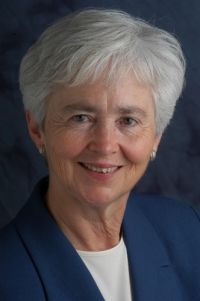Authors ›
Anne E. Patrick
Anne E. Patrick, SNJM, was William H. Laird Professor of Religion and the Liberal Arts, emerita, at Carleton College, Northfield, Minnesota, and the author of Conscience and Calling: Ethical Reflections on Catholic Women’s Church Vocations. She was a member of the Sisters of the Holy Names of Jesus and Mary, a former president of the Catholic Theological Society of America, and a founding vice-president of the International Network of Societies for Catholic Theology. As chair of the Committee on Women in Church and Society of the National Assembly of Women Religious, she helped to plan the 1975 Women’s Ordination Conference. Her writings on religious, ethical, and literary topics have appeared in many books and periodicals.
She died July 21, 2016.
There is a question of whether the gender-based imbalance of power in Catholicism that made the apostolic visitation and doctrinal investigation possible in the first place is a human construct subject to reform, or a divinely established order to be maintained despite cultural change. In approaching this question I have found a distinction between classicism and historical consciousness.
Twice in recent months Catholics have breathed a sigh of relief when press conferences in Rome announced the friendly settlement of difficulties between Vatican officials and American women religious. Although Pope Francis gives evidence of androcentric thinking, I believe his commitment to initiating processes of reform that allow for the voicing of divergent views is promising where justice for women is concerned.
Since his election in 2013, Pope Francis has been very generous with his words. There have been addresses, homilies, conversations, phone calls, interviews and writings, including an apostolic exhortation on “The Joy of the Gospel” (Evangelii Gaudium). Still, the pope has been silent, or very reticent on certain questions.
The fact that so many holy founders have been celebrated by Catholics over the centuries suggests that some women religious who aspire to prophecy today may also be called to tasks of institutional creation and construction, tasks we might refer to “founding” and “re-founding,” and in some cases to institution maintenance as well.

